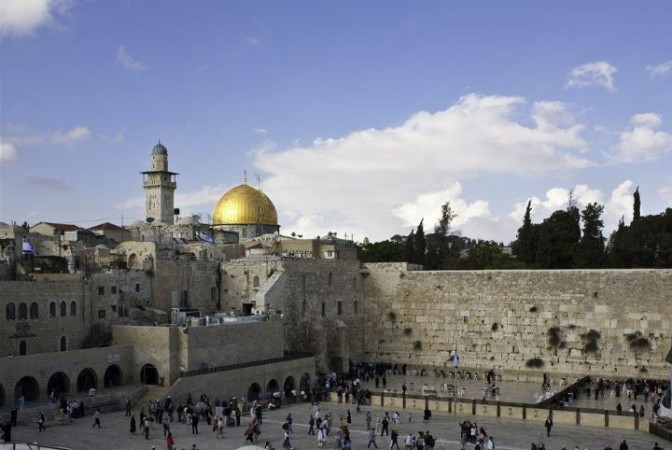
Jerusalem: The history of Jerusalem is rich and complex, marked by various religious and political developments over the centuries. To provide a detailed overview, we'll explore key events related to the settlement of Jerusalem, its early inhabitants, the wars fought for its control, the construction of its first shrine, and the building of the Al-Aqsa Mosque.
Settlement of Jerusalem:
The story of Jerusalem is one that spans millennia, with its origins tracing back to the dawn of civilization. We'll explore how this ancient city was settled, examining its earliest inhabitants and their contributions to its rich tapestry.
Ancient Inhabitants:
The history of Jerusalem is intricately woven with the stories of its ancient inhabitants. The city's journey begins with the arrival of the Canaanites around the 4th millennium BCE. These early settlers established one of the region's first communities, planting the seeds of Jerusalem's future significance. Around 1800 BCE, the Jebusites left an indelible mark by building a city on the site that would become Jerusalem. Known as Jebus, this city played a pivotal role in the city's nascent development, contributing to its unique character.
Israelite Rule and First Temple:
The annals of Jerusalem's history were significantly shaped by Israelite rule. King David's conquest of the city in the 10th century BCE marked a turning point. The city was renamed the "City of David," and under the reign of King Solomon, the renowned First Temple, often referred to as Solomon's Temple, was constructed. This iconic structure served as the epicenter of Israelite worship and housed the sacred Ark of the Covenant, fundamentally influencing the city's identity and religious importance.
Wars for Control:
Throughout history, Jerusalem's strategic location and spiritual significance made it a coveted prize. A series of wars and conquests defined its path:
Babylonian Conquest (587/586 BCE): The city fell to the Babylonians, resulting in the tragic destruction of the First Temple and the exile of countless Jews.
Persian Era: Under Persian rule, Jerusalem saw the return of the Jewish community and the reconstruction of the city, including the Second Temple.
Hellenistic Influence: The conquests of Alexander the Great introduced Hellenistic elements to Jerusalem, sparking tensions between Hellenistic rulers and the local Jewish population.
Maccabean Revolt (2nd century BCE): The Maccabees, a Jewish rebel faction, successfully secured independence from Seleucid rule, paving the way for Jewish self-governance.
Roman Conquest and Beyond:
The turning point came in 63 BCE when Roman General Pompey captured Jerusalem, inaugurating a new era of Roman dominance over the city. Jerusalem's historical journey continued to unfold under the influence of various empires and dynasties.
The Birth of Al-Aqsa Mosque:
The Al-Aqsa Mosque, a revered symbol of Islamic heritage, is situated atop the Temple Mount. According to Islamic tradition, this sacred mosque was erected during the 7th century CE. Umayyad Caliph Al-Walid ibn Abd al-Malik undertook its construction in 705 CE, making it one of the oldest Islamic structures in existence. For Muslims, Al-Aqsa Mosque holds the distinction of being the third holiest site in Islam, following the Kaaba in Mecca and the Prophet's Mosque in Medina.
Legacy and Significance:
The rich tapestry of Jerusalem's history, defined by diverse residents and conquerors, has indelibly marked the city's cultural, architectural, and historical identity. Their collective legacies continue to resonate through the city's religious, architectural, and cultural landmarks, each adding a layer to its complex narrative.
Jerusalem remains a place of profound religious and historical importance for multiple faiths, including Judaism, Christianity, and Islam. Over the centuries, debates and conflicts over its sovereignty and control have persisted, reflecting the enduring significance of this ancient city.
Italian Prime Minister Giorgia Meloni Announces Separation from Partner Amid Controversial Remarks
President Herzog Acknowledges Support from UK Amidst Israel's Battle Against Terrorism
Palestinian Islamic Jihad: A Militant Player in the Israel-Hamas Conflict